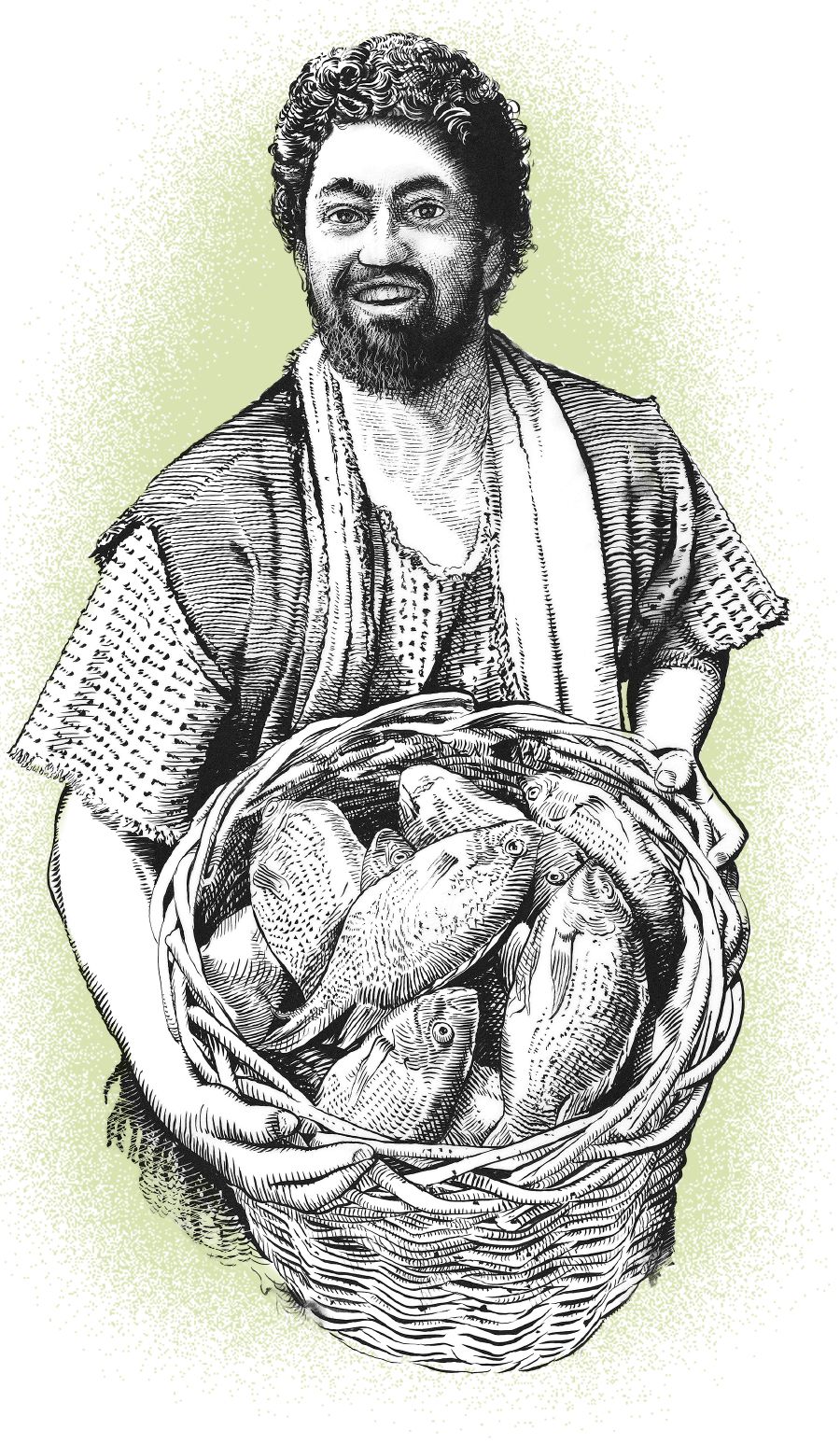Peter is identified by five names in the Scriptures. He is known as Symeon in Hebrew and its Greek equivalent, Simon, and as Peter and its Semitic equivalent, Cephas. The apostle is also identified as Simon Peter, a combination of two names.—Matt. 10:2; John 1:42; Acts 15:14.

Peter was married and shared his home with his mother-in-law and brother. (Mark 1:29-31) He was a fisherman from Bethsaida, a town on the north side of the Sea of Galilee. (John 1:44) He later lived nearby in Capernaum. (Luke 4:31, 38) It was in Peter’s boat that Jesus sat when addressing a multitude that gathered on the shore of the Sea of Galilee. Immediately afterward, at Jesus’ direction, Peter hauled in a miraculous catch of fish. Peter fell to his knees in fear, but Jesus said to him: “Stop being afraid. From now on you will be catching men alive.” (Luke 5:1-11) Peter fished with his brother Andrew, as well as with James and John. All four abandoned their fishing business when they accepted Jesus’ invitation to become his followers. (Matt. 4:18-22; Mark 1:16-18) About a year later, Peter was among the 12 whom Jesus chose to be his “apostles,” meaning “sent ones.”—Mark 3:13-16.
Jesus selected Peter, James, and John to accompany him on special occasions. They witnessed Jesus’ transfiguration, saw him resurrect Jairus’ daughter, and shared his grief in the garden of Gethsemane. (Matt. 17:1, 2; 26:36-46; Mark 5:22-24, 35-42; Luke 22:39-46) The same three, along with Andrew, questioned Jesus regarding the sign of his presence.—Mark 13:1-4.
Peter was forthright, dynamic, and sometimes impulsive. It seems that he often spoke up before his fellows did. The Gospels record his words more often than those of the other 11 apostles put together. Peter raised questions while the others remained silent. (Matt. 15:15; 18:21; 19:27-29; Luke 12:41; John 13:36-38) He was the one who objected to Jesus’ washing his feet and then, on being reproved, asked Jesus to wash also his hands and head!—John 13:5-10.
Strong feelings moved Peter to try to persuade Jesus that He would not have to suffer and be killed. Jesus firmly corrected him for that lapse in judgment. (Matt. 16:21-23) During Jesus’ final night on earth, Peter declared that even though all the other apostles might abandon Jesus, he never would. When Jesus’ enemies arrested him, courage moved Peter to defend Jesus with the sword and later to follow him right into the courtyard of the high priest. Yet, not long afterward, Peter denied his Master three times and then wept bitterly when he realized what he had done.—Matt. 26:31-35, 51, 52, 69-75.
Shortly before Jesus’ first post-resurrection appearance to his apostles in Galilee, Peter announced that he was going fishing, and other apostles joined him. On recognizing Jesus on the beach, Peter impulsively plunged into the water and swam ashore. At the breakfast of fish that Jesus cooked for his apostles, Jesus asked Peter if he loved him more than “these”—that is, the fish that were before them. Jesus was urging Peter to choose to follow him full-time rather than pursue a career, such as the fishing business.—John 21:1-22.
In about 62-64 C.E., Peter preached the good news in Babylon, in modern-day Iraq, where there was a large Jewish population. (1 Pet. 5:13) In Babylon, Peter composed the first and possibly the second of the two inspired letters bearing his name. Jesus “empowered Peter,” entrusting him with “an apostleship to those who are circumcised.” (Gal. 2:8, 9) With compassion and vigor, Peter fulfilled his commission.